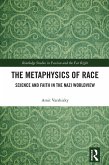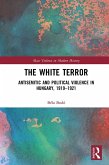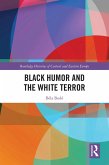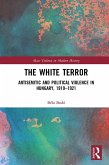Drawing on a large variety of works, the volume offers insights into the intellectual climate that allowed the radical ideology of National Socialism to take hold. It examines the emergence of nuanced conceptions of race in interwar Germany and the pursuit of a new ethical and existential fulcrum in biology. Accordingly, the volume calls for a re-examination of the place of genetics in Nazi racial thought, drawing attention to the multi-register voices within the framework of interwar racial theory. Varshizky explores the ways in which these ideas provided new justifications for the Nazi revolutionary enterprise and blurred the distinction between fact and value, knowledge and faith, the secular and the sacred, and how they allowed Nazi thinkers to bounce across these epistemological divisions.
This volume will be of interest to scholars of Nazi Germany and World War II, intellectual and cultural history, the history of science, and the philosophy of religion.
Dieser Download kann aus rechtlichen Gründen nur mit Rechnungsadresse in A, B, BG, CY, CZ, D, DK, EW, E, FIN, F, GR, HR, H, IRL, I, LT, L, LR, M, NL, PL, P, R, S, SLO, SK ausgeliefert werden.









